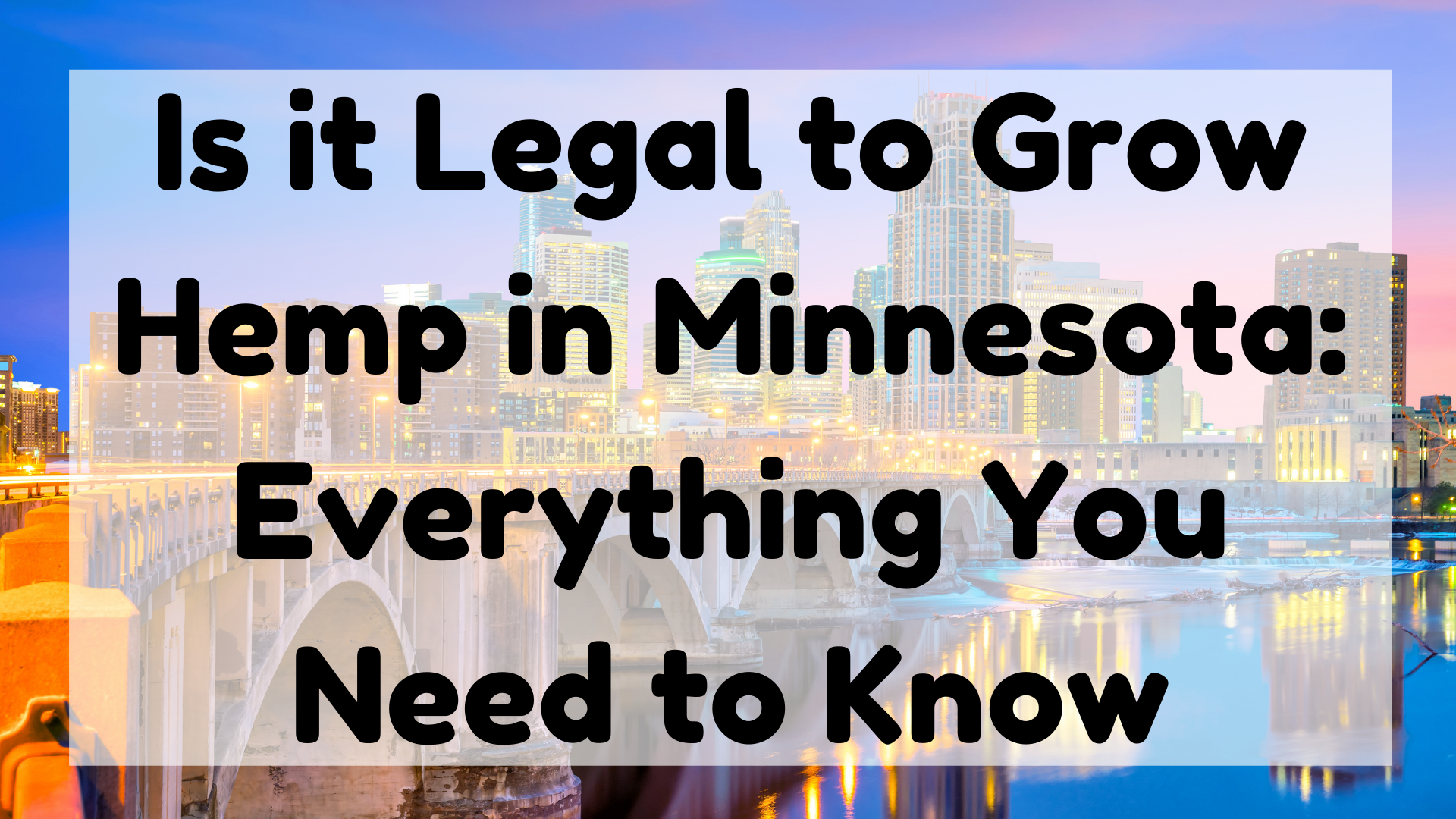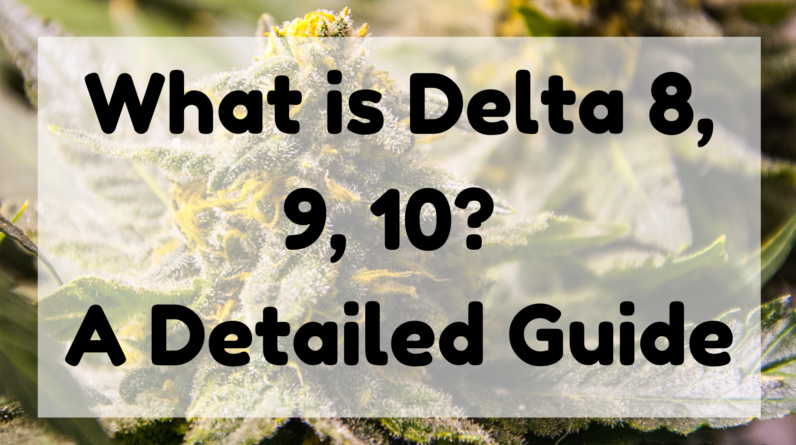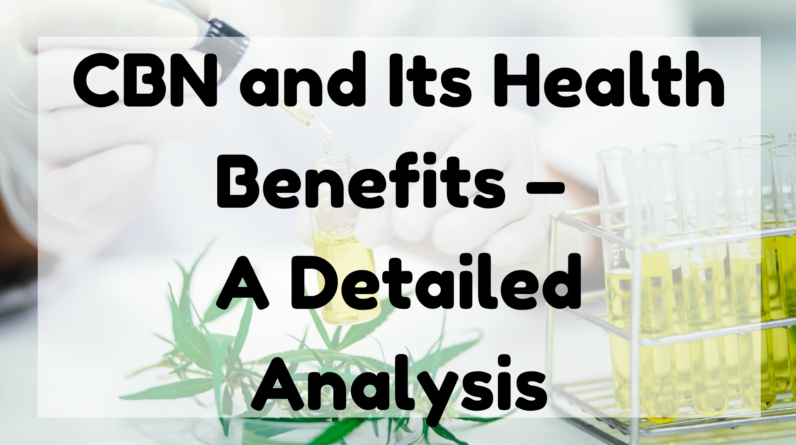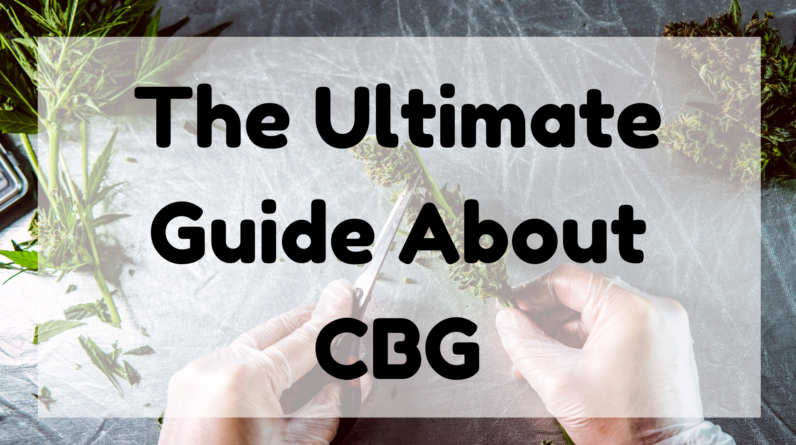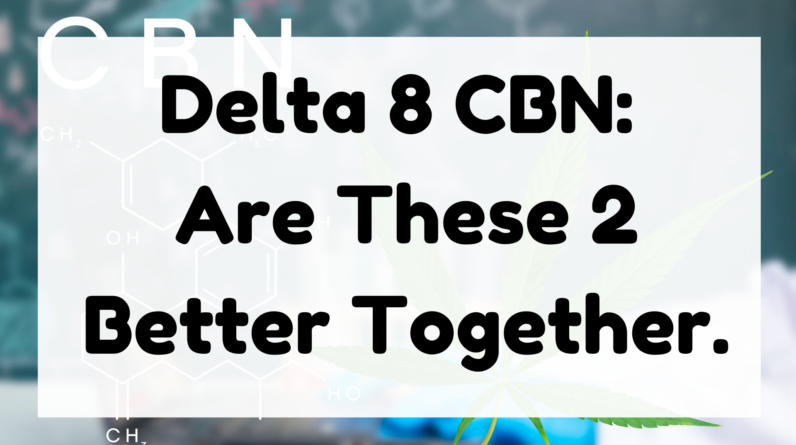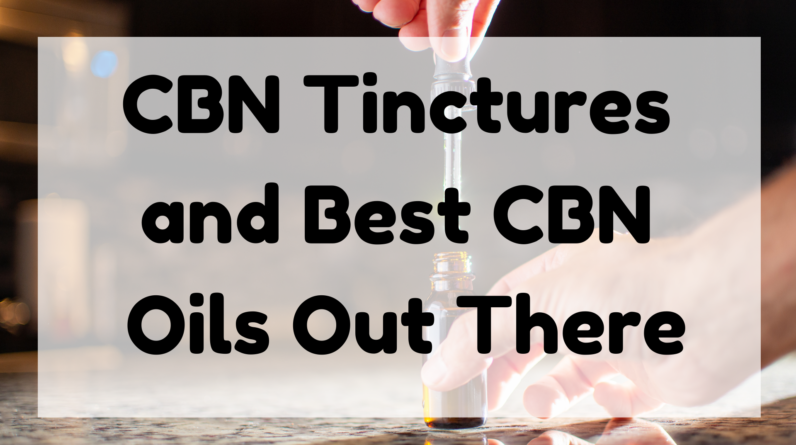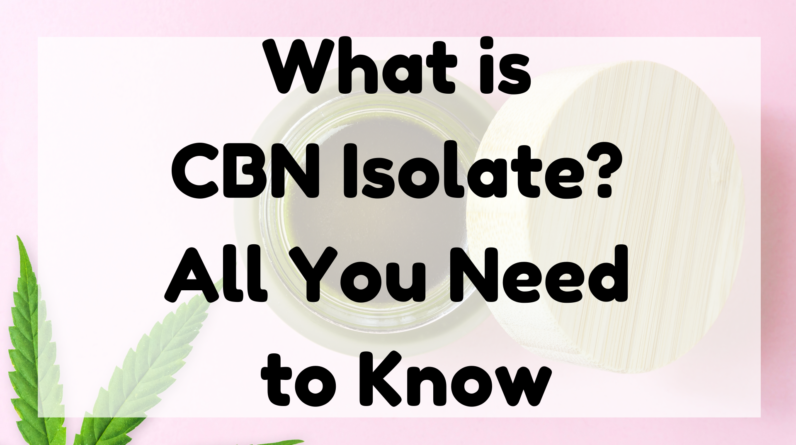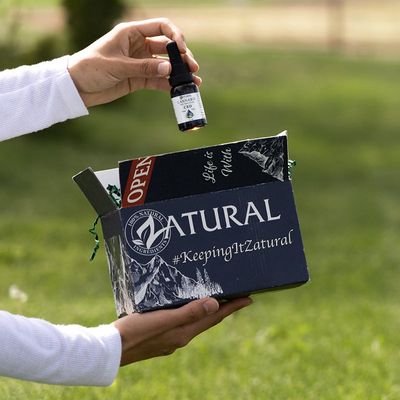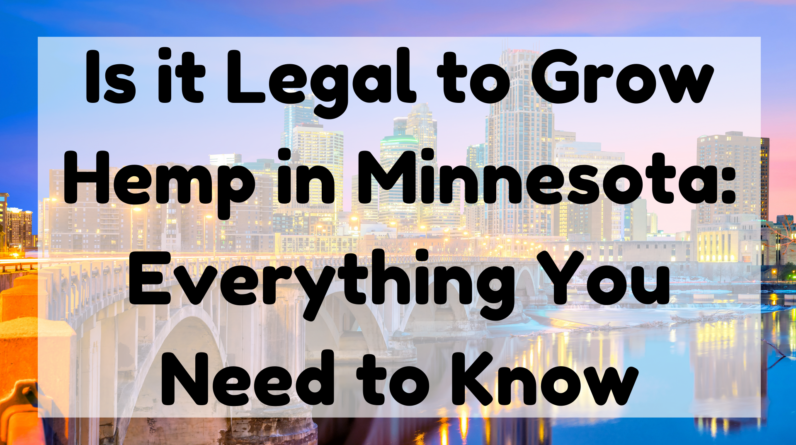
Is It Legal To Grow Hemp In Minnesota: Everything You Need To Know
After the passage of 2018’s Farm Bill into law, there’s been a change in the hemp market throughout the United States.
The main thing the new law permitted states to develop individual hemp-based farming policies.
Once the application has been approved and submitted, the state that applied may begin cultivating hemp legally within its boundaries.
Of course, they’ll first be required to issue licenses to farmers who want to join the industry, but once they’ve done that, it’s effortless.
As many rejoice in the achievements in 2018 that the Farm Bill has brought, there’s still plenty of a grey area.
The hemp industry is still in its infancy, and laws and rules that govern the sale and purchase of hemp are unclear at the very least.
What is legal, what’s not, and what else are you required to be aware of?
This article will provide all the details regarding Minnesota hemp law and the place it can put you.
Is it legal to grow hemp in Minnesota?
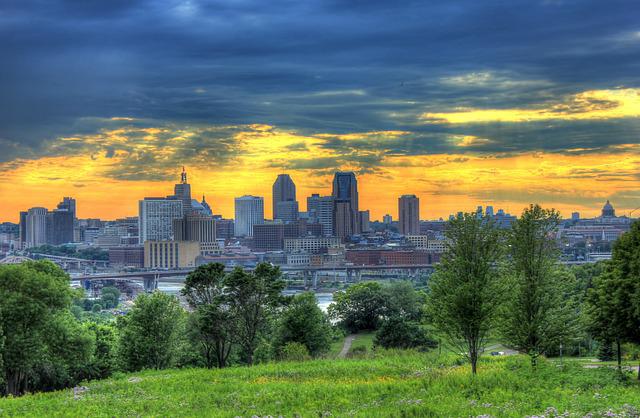
Before it could be legalized hemp, the new Farm Bill needed to define the term first.
Defining the criteria that separate hemp from marijuana authorities could effectively regulate the crops their farmers grew.
The primary debate about hemp was triggered by the close relationship between marijuana and hemp.
Both of them are harvested using the Cannabis Sativa L. plant.
You could consider that hemp and marijuana are alike based on their origins.
However, differences in the development processes of these plants affected their chemical composition.
This is why marijuana can produce a high psychoactive effect that is not present in the hemp experience.
The chemical component responsible for this – delta-9 tetrahydrocannabinol, is the primary controlled drug that law enforcement officials attempt to control.
To distinguish cannabis and hemp, lawmakers had to determine where THC is considered safe and where it would begin to cause those undesirable adverse effects.
The 2018 Farm Bill defines hemp as any component or part of Cannabis sativa.
The plant that has THC is not over 0.3 percent.
Suppose a product has these requirements legally and is secure, including any of its derivatives.
How to grow hemp in Minnesota
Any interested person or company must apply for a license to participate in the commercial hemp farming process.
Applying for a license is conducted through the Minnesota Department of Agriculture.
The MDA is following the guidelines set out in the Hemp Pilot Program until USDA clears its permanent plan.
A few of the requirements for a processing or growing license is the ability to apply online.
Additionally, there are specific fees to be paid, and every person must pass a background check both at the federal and state levels.
Any person who has committed a drug-related crime within the last ten years is not eligible to apply for an official license.
But, those who belong to this category can still work in the hemp industry as a processor or farmers.
Only the applicant for the permit has to be able to pass the background screening.
Additionally, from 2021, licensed holders can’t cultivate, process, or store hemp inside the home of a resident.
In lieu, all these activities have to be carried out on an outdoor field or an establishment, like greenhouses, warehouses, or a greenhouse.
The spaces designated as “growing, processing, and storing” areas should be certified by the MDA.
Can you grow hemp legally in Minnesota?
There is no current law. Only licensed growers are permitted to cultivate hemp within the State of Minnesota.
To obtain a license, applicants must promptly submit the form and other requirements.
This could include background checks, GPS coordinates for the proposed location for the growing site, and an outline of the facility comprising any structures located within the site that could be used to handle, cultivate or process hemp.
The fee for the license is $150. However, each hemp farm requires the payment of $250 to be permitted to grow hemp.
Additional fees are also applicable; however, most of them will not exceed $250, making hemp cultivation located in Minnesota among the more cost-effective options.
Minnesota HEMP laws
Minnesota launched the Hemp Pilot Program in 2016.
The program was administered and managed through Minnesota’s Minnesota Department of Agriculture (MDA).
The 2014 U.S. Farm Bill guided the Department to describe the state’s plans.
Under the Farm Bill, universities, higher learning institutions, and the state’s Department of Agriculture could grow the plant to conduct research.
While the program only accepted six licensed growers during the season of 2016, the number of growers and acres planted increases every year.
In the year 2019, over 350 hemp growers were licensed.
The number grew exponentially after it was announced that the Agricultural Improvement Act of 2018 became law.
The Act was amended and updated in 2014 the Farm Bill in extraordinary ways.
The first significant modification was to remove industrial hemp as a Schedule 1 drug in the Controlled Substances Act (CSA).
Before this, hemp had been categorized as marijuana.
Therefore, it was not legal to cultivate and consume hemp at the federal level.
Blue Bayou Hemp Oil Tinctures
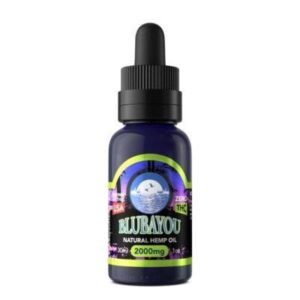
Bluemoon Hemp CBD Oil is the third-lowest hemp milligram strength.
It provides the delicious, earthy flavor and aroma of CBD in its purest form.
This Natural Hemp Tincture is for the unadulterated of us all!
A blend of 30ml made of Organic Cold Pressed Hemp Oil together with CBD.
The result is greater efficiency and better absorption, which leads to greater effectiveness.
Conclusion
In 2018, the 2018 Farm Bill and Minnesota Hemp Act created many regulations and changes for Minnesota hemp and CBD companies.
The modifications have made it possible for hemp and CBD producers, distributors, and retail shops in Minnesota to legally cultivate, distribute, and market hemp and CBD products.
Failure to comply promptly can lead to significant issues for non-compliant Minnesota CBD companies.
NEXT What Are Cookies Hemp-Derived Delta 8?
Legal and Medical Disclaimer
Information provided on the site is for educational purposes only, and does not substitute for professional medical advice.
You MUST consult a medical professional or healthcare provider if seeking medical advice, diagnoses, or treatment.
Additionally, you must consult your local and federal laws regarding the legality of buying CBD and THC products.
We do not provide any legal advise.


